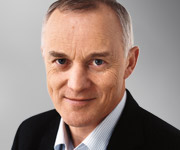THE excitement of being able to participate or even lead in the development of new treatments in difficult areas such as obesity, cancer prevention and treatment, arthritis and back pain is enticing.
Unfortunately for medical practitioners, there are business entrepreneurs ready to trade on their genuine enthusiasm and — dare I say — naivety. A recent example involves weight loss.
It’s not easy to lose weight and even harder to keep it off. Motivation, willpower, energy in and energy out — it sounds so simple but it isn’t.
We now know weight and fat stores are carefully regulated by powerful physiological mechanisms that actually defend against permanent weight loss — all understandable when we consider that our body computes weight loss as a signal of starvation, famine and death.
With the failure of the pharmaceutical companies to develop acceptably safe medications in this difficult area, we are left with an enormous vacuum and a huge untapped market of people who want to lose weight.
The field is fertile for the “scam” professionals and complementary medicines are an easy target.
As medical practitioners we can become unwittingly entrapped in these scams. We too want to believe someone has finally developed an effective remedy.
A recent example involved a mouth spray, launched onto the Australian market with great fanfare. There were statements of massive randomised controlled trials (RCTs) with exceptional results — results that those of us in the know would think were “too good to be true”.
How could this large, multicentre RCT involving thousands of people globally have not come to our attention? A prominent European weight loss physician was engaged as a consultant by the manufacturers/promoters with the promise of the trial data being supplied.
In the meantime, this physician’s name was widely used to support the claims, giving the appearance of expert validation, which aided promotion. However, the data to support the claims was never supplied, leaving the physician high and dry with his reputation damaged.
By the time the penny finally dropped he was in an uncomfortable position as the promoters had changed from being soft and appreciative to being aggressive, confrontational and threatening. This particular matter is heading for a legal resolution.
An Australian medical practitioner, concerned about the extraordinary claims being made about this product, openly questioned the results and advised the Australian Therapeutic Goods Administration of his concerns. He was also met with aggressive, confrontational behaviour and legal action by the same promoters.
This intimidatory modus operandi is often used by the unscrupulous to suppress the squeaky wheel and delay the appropriate assessment by regulators. Meanwhile, the income rolls in and by the time the dust settles the original product has had its day and the next scam is already up and running.
This practice is not restricted to weight loss. Wherever there are regulatory grey zones, for example complementary and traditional medicines, and cosmetics, unwary consumers and medical practitioners are at risk of being exposed to unscrupulous operators.
Beware the company that delays provision of quality data, or becomes defensive or aggressive, or attempts to turn the table of blame back on practitioners who push for answers and evidence.
It takes a very strong practitioner to weather this storm but protecting the wellbeing of Australian health consumers from expensive and potentially dangerous scams makes it worthwhile.
Associate Professor John Dixon is an NHMRC Senior Research Fellow in obesity research at the Baker IDI Heart and Diabetes Institute, Melbourne, and head of the obesity research unit, Department of General Practice, Monash University, Melbourne.
Posted 14 June 2011

 more_vert
more_vert
But Conrad, the poll is fair: we have a name for alternative medicines that have been shown effective in RCTs … “medicine”. (Tim Minchin in his song ‘Storm’ says it best).
Re my comment sent a moment ago. When I referred to “clinical evidence, preferably RCTs”, I should have added (in view of the theme of the article) ….”PUBLISHED ratified RCTs” !
Excellent article. But inappropriate poll questions. The criteria for endorsing any medicine or treatment (no matter whether mainstream or alternative or complementary) should surely be dependent upon the clinical evidence, preferably RCTs.